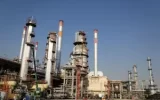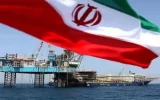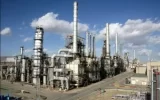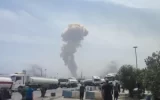
While the CEO of the National Oil Company speaks of a shortage of LPG for export, the company's official statistics show that more than a billion dollars of this valuable gas has been burned in flares due to mismanagement.

According to a capital market expert, the initial public offering of Arvand Petrochemical shares benefits the market from two perspectives: it will both improve the quality of the stock exchange and pave the way for investors to make profits.

In order to accelerate the process of accepting Bandar Imam Petrochemical's shares in the capital market, a joint meeting was held with the presence of the CEOs of Bandar Imam Petrochemical, Iran's Farabourse Company, and Modabaran Eqtesad Investment Company.

The National Iranian Petroleum Refining and Distribution Company, in the role of the grand coordinator, is set to sign a memorandum of understanding to modernize Tehran's motor courier fleet in cooperation with the Ministry of Transportation, banks, municipalities, and online transportation platforms.

The head of the country's Oil Refining Association said: Iran's gasoline production increased from 107 million liters per day to 120 million liters per day in May.

Iranian oil reaches China via shadowy tankers that are difficult to track; now that the US has lost some of its influence due to the tariff war, this task has become more difficult than before.

After years of stagnation, ignorance, and uncertainty, the name of the Kish gas field is now on the lips again, and news indicates that the first phase of this field has been completed and it is ready to produce 28 million cubic meters of gas per day. But what has put the Kish gas field on the verge of a major change is the dire need for investment for the second, third, and even fourth phases; a project that requires about $8 billion in financial resources; meanwhile, rumors indicate that Persian Gulf Holding is the most serious option to enter this field.

Shazand Petrochemical Company announces a new number for nominal capacity in every interpretative report; a behavior that has made the percentage of capacity realization in this company always seem desirable, but the basis for its calculation is questioned by analysts and shareholders.

Petrochemicals have no gas for four months of the year, and soon it will be six months. To survive, petrochemicals have turned to upstream to develop gas fields themselves. But a year after the MoUs were signed, no contracts have been finalized and no gas has been extracted.

Moments ago, a massive explosion occurred in the Shahid Rajaee Port area.










